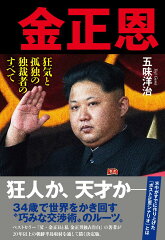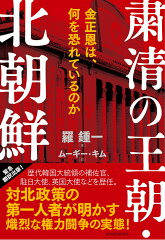
<prologue>
I started a blog called “The Baby Boomer Generation’s Miscellaneous Blog”(Dankai-sedai no garakutatyou:団塊世代の我楽多(がらくた)帳) in July 2018, about a year before I fully retired. More than six years have passed since then, and the number of articles has increased considerably.
So, in order to make them accessible to people who don’t understand Japanese, I decided to translate my past articles into English and publish them.
It may sound a bit exaggerated, but I would like to make this my life’s work.
It should be noted that haiku and waka (Japanese short fixed form poems) are quite difficult to translate into English, so some parts are written in Japanese.
If you are interested in haiku or waka and would like to know more, please read introductory or specialized books on haiku or waka written in English.
I also write many articles about the Japanese language. I would be happy if these inspire more people to want to learn Japanese.
my blog’s URL:団塊世代の我楽多(がらくた)帳 | 団塊世代が雑学や面白い話を発信しています
my X’s URL:団塊世代の我楽多帳(@historia49)さん / X
After the breakdown of the second U.S.-North Korea Summit held on February 27-28, 2019, North Korean leader Kim Jong-un has become a dictator who reminds us a lot of Stalin of the Soviet Union.
1.About Stalin
Joseph Stalin (1878-1953) was a Soviet politician from the region of Georgia (now Georgia). He joined the “October Revolution” (1917) led by Vladimir Lenin (1870-1924) and the Bolsheviks (Russian Communist Party), and after Lenin’s death, he overcame Lev Trotsky (1879-1940) in a succession struggle to become the General Secretary. He established a “dictatorship” by concentrating his authority.
This was followed by a large-scale purge (arrests and executions of opponents) known as the “Stalin Purges. The “purges” had previously been carried out by 1,000 to 20,000 people each year, but the “Great Purge” of 353,000 people in 1937 and 328,000 people in 1938 were carried out.
All those who had opposed Stalin for the leadership of the party were sentenced to death in public trials (Moscow trials). Stalin assigned responsibility for his own misrule to the conspiracies of his accused opponents.
He then made it public to foreign journalists as a means of justifying the Great Purge internationally.
He rejected the “world revolutionary theory” of the Trotskyites in favor of maintaining the domestic system through “socialism in one country. He was also distrustful of people, paranoid and paranoid, brutal and ruthless.
Nikita Khrushchev (1894-1971), who became the supreme leader of the Soviet Union after Stalin’s death, said of Stalin, “He found everywhere, against everyone, in all matters, an enemy, spy, and traitor.”
He also created a “personal cult” of himself through “propaganda. Statues of Stalin were created in large numbers and placed in all kinds of places. Poetry books praising Stalin as a god, and the book “Stalin’s Biography” is filled with rhetorical flourishes such as “The Greatest Ruler”.
2.Who is Chairman Kim Jong-un?
Chairman Kim Jong-un (1984? ~ ? ) is the grandson of President Kim Il Sung (1912-1994), who established the “Democratic People’s Republic of Korea” with the support of the Soviet Union, and the third son of his father, General Secretary Kim Jong Il (1941-2011).
The faction of his grandfather, Kim Il Sung, was initially an overwhelming minority and weak force in the North Korean government and among communists in North Korea, but gradually won out in the constant struggle within the party and laid the foundation for the dictatorship also known as the “Kim Dynasty.
Kim Jong-un, the third-generation leader, was not promised the leadership at birth. He became the third generation after winning a succession struggle with his assassinated eldest son, Kim Jong-nam (1971-2017), and his second son, Kim Jong-chol (1981- ).
3.Kim Jong-un’s Purge
After the death of Kim Jong-il, Kim Jong-un seems to have purged one after another Kim Jong-nam’s guardian Jang Sung-taek and Kim Jong-il’s former aides and subordinates who were his guardians, and they have completely disappeared from the public stage.
This situation seems to me to be similar to Stalin’s purges.
There does not seem to have been any notable purges since then, but in May 2019, after the “second U.S.-North Korea summit” ended in failure, the Chosun Ilbo, a South Korean newspaper, reported that the then negotiator with the U.S., Kim Kak Chol (Special Representative for the United States on the State Council), and others were executed for their responsibility in the breakdown. However, it is unclear whether this is true or not. According to a later report by the U.S. CNN, they are “detained but alive.
Also, although not a purge, it was reported that the mass games and artistic performance “The People’s Land,” which began on June 3 and was originally scheduled to run through October, has been suspended since June 10 due to criticism from Kim Jong-un. Mass games are often held in North Korea as an important means of attracting foreign tourists amid declining foreign currency income due to economic sanctions.
According to the Korean Central News Agency, Kim Jong-un called the creative members after viewing the performance on the first day and “seriously criticized (reprimanded) them for their wrong creative and creative temperament and irresponsible working style.
The Free Asia Radio (FRA), an American radio broadcaster, reported that the root cause of the cancellation of the performance was the following circumstances. We do not know the truth, but this is probably the true story.
The North Korean authorities allocated about 60% of the “People’s Land” performance participants to local students, but failed to provide them with proper meals. Malnutrition caused a number of students to catch colds and enteritis, which interfered with rehearsals. As a result, the quality of the performance did not reach the level expected by Kim Jong-un.
It was also reported that he had just recently amended the Constitution to “complete absolute rule” by clearly stating his name. The mission of the “national armed forces” in Article 59, which was to “carry out the first military revolutionary line and defend the leadership of the revolution,” has been amended to “defend the Party Central Committee headed by the great Comrade Kim Jong-un to the death”. Such an amendment is unprecedented and would have made the country a dictatorial despotism, not a “democratic people’s republic” in name only.
This, I believe, probably mimics Chinese President Xi Jinping’s decision to include his name in the Constitution by amending it to clearly state “Xi Jinping Thought”.
4.Blitzkrieg U.S.-North Korea Summit at Panmunjom
I believe that the June 30 “blitzkrieg U.S.-North Korea summit” at Panmunjom was a “mere performance” and “farce” for President Trump to promote his diplomatic achievements with the election in mind, and that the meeting was completely without substance, “just an agreement to resume dialogue.
In North Korea, it is widely reported that “Chairman Kim Jong-un held a historic U.S.-North Korea summit meeting to clear the past and look toward the future.
However, President Trump, who conducted the U.S.-North Korea summit, may have sent the wrong message to Chairman Kim Jong-un, who has not taken any proactive measures.
I believe that this U.S.-North Korea summit was a foolish move that only benefited Chairman Kim Jong-un.
The other was to save face for South Korean President Moon Jae-in, who had self-identified as a negotiating mediator for the U.S.-North Korea summit. However, South Korean President Moon Jae-in was viewed coldly by both the U.S. and North Korean leaders.
5.About the Japan-North Korea Summit
Prime Minister Abe is very eager to hold a Japan-North Korea summit meeting, and has stated that he will “engage in unconditional and open-minded dialogue,” but it is highly doubtful that the other party will truly respond “open-mindedly” to such a meeting.
I strongly hope that Prime Minister Abe will not be “too forward” like President Trump and never “make too many concessions” to North Korea. Without a complete resolution of the abduction issue, I hope that Japan will not simply give North Korea compensation, economic cooperation, and other funds as a way of clearing up the past, or ease economic sanctions.

